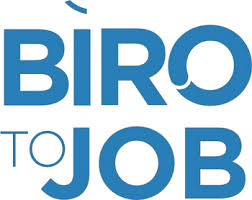Multinationals Groan As Dollar Loans, FX Scarcity Ground Operations

Businesses that took dollar loans are counting their losses as forex scarcity and naira depreciation continue to impact negatively on their operations.
The ongoing reforms in the forex market, which saw the Central Bank of Nigeria (CBN) unify multiple exchange rates into the Investors’ and Exporters (I&E) window have continued to impact operations of several multinational businesses in the economy.
The multinationals are lamenting the impact of persistent dollar scarcity triggered by inadequate supply from key economic agents and the CBN.
Diageo Plc’s Nigeria unit said it’s struggling to obtain dollars to pay back foreign-currency loans, despite the government’s liberalization of the foreign-exchange market to help to revive the economy.
Nigeria’s new government in June allowed the naira to trade freely to attract inflows and boost dollar supply. Although the liberalization has led the local currency to depreciate around 40 per cent against the dollar, supply of the greenback is still limited relative to demand.
As a result, Nigerian companies with significant dollar debts have suffered significant currency-related losses.
The Diageo subsidiary, Guinness Nigeria Plc, declared a loss of N18.2 billion for 2023 compared to N15.7 billion-naira of profit in the previous year after its finance costs soared on the currency devaluation.
Finance and Strategy Director, Emmanuel Difom, said it wants to pay off the loans but can’t at present owing to dollar shortage.
“If liquidity improves, our plan is to actually pay off everything we owe on hard currency” to reduce our vulnerability, he said Friday on an investor call in Lagos. “We have sufficient cash in naira to pay off and all we need is access to hard currency.”
The company Is substituting imported raw materials with locally produced items and also expanding exports to boost dollar earnings to curb dependence on external sources for foreign currency,” Difom told Bloomberg.
At the Nigerian forex market, “we have seen a little bit of offers, at rates ranging between N800 and N850 a dollar, but not a big supply,” he said. “We expect liquidity to improve in the next couple of months. The rate is not the problem; we need dollar availability.”
Also, GlaxoSmithKline Consumer Nigeria Plc has announced plans to shut down its operations in the country.
The Company Secretary, Frederick Ichekwai, informed the Nigerian Exchange Limited about the move.
The company, whose primary activities include marketing and distribution of consumer healthcare and pharmaceutical products, said that its parent company, GSK Plc UK, had revealed its intent to cease commercialisation of its prescription medicines and vaccines through its Nigerian subsidiary.
Part of the statement read, “In our published second quarter results we disclosed that the GSK UK Group has informed GlaxoSmithKline Consumer Nigeria Plc of its strategic intent to cease commercialization of its prescription medicines and vaccines in Nigeria through the GSK local operating companies and transition to a third-party direct distribution model for its pharmaceutical products.”
The company said It will be briefing its employees, whom it promised to “Treat fairly, respectfully and with care, meeting all applicable legal and consultation requirements.”
In responsibility to shareholders, the statement said that the “Board is conscious that shareholders will have many questions; we have been working assiduously with our professional advisors to agree on the next steps and we will be shortly submitting to the Securities and Exchange Commission, a draft Scheme of Arrangement which may, if approved, see shareholders other than GSK UK, receive an accelerated cash distribution and return of capital.”
Analysts said part of the GlaxoSmithKline challenge was difficulty in accessing forex for its operations and other policy hitches in the economy.
The Acting CBN Governor, Folashodun Shonubi, admitted that there was forex demand pressure in the market during the just concluded Monetary Policy Committee (MPC) meeting in Abuja.
He said: “Gross external reserves improved marginally to US$33.97 billion as at July 20, 2023, from US$33.75 billion in June 2023, as accretion to external reserves remains weak while foreign exchange demand pressures persist.”
Chief Executive Officer, Centre for the Promotion of Private Enterprise (CPPE) Dr. Muda Yusuf, disclosed that GSK has been incrementally winding down its operations in Nigeria over the past few years.
He said that about three years ago, it discontinued direct production of many of its brands in Nigeria and opted for outsourcing.
“It is a reflection of the increasingly difficult operating environment for investors, especially manufacturers. Indigenous investors are equally exposed to these headwinds. It is not just about foreign investors,” he said.
Continuing, Yusuf said the macroeconomic environment has been challenging, structural issues are impeding competitiveness, poverty is constraining affordability of products by consumers, influx of Asian products into the Nigerian market is a manufacturer’s nightmare and foreign exchange market illiquidity and associated distortions was a major source of frustration for most investors.
He said the losses declared by many firms recently were a manifestation of the impact of exchange rate risk. Typically, firms with huge foreign exchange obligations are very vulnerable in a volatile macroeconomic environment.
“Exchange rate risks are very high because of our weak balance of payment position. The revaluation of foreign exchange liabilities amid the reforms in the forex market would predictably result in current outcomes for companies with significant foreign exchange obligations. It is a question of crystallisation of exchange rate risk. It is quite predictable. Using an exchange rate of N460 to the dollar to value these forex exposures over the past few years was purely academic. The reality is what is unfolding now,” he said.
On his part, former Executive Director, Keystone Bank Limited, Richard Obi, said the GSK announced intention to exit Nigeria may have been in the works for some time.
He said decisions of this nature normally take some time to reach especially when you consider they have been operating in this market for some 51 years.
“It is coincidental that the company’s announcement of its exit has come at the same time several other major companies are announcing significant losses due to forex rate movements. It is always risky in an unstable economic environment such as ours for corporates which do not earn hard currencies to have large foreign currency open positions in their balance sheets. These open foreign currency positions could have been, for example, from trade credits from parent entities overseas or from low interest foreign currency loans,” he said.
Obi said the adverse exchange rate movement against the Naira in recent weeks have now led to the crystallization of this risk resulting in the reported massive losses by these corporates.
“These corporates now have to work out an appropriate response. Product price upward reviews have already been announced by some. Others will do the same in due course. Opportunities for resource use efficiencies will be sought which could lead to shutting down some business units, rationalization of others and right sizing the workforce to align with their new realities. Job losses and further rise in prices are likely fallouts for the economy,” he said.
Also speaking, Nigeria Country Representative, European Organization for Sustainable Development, Jide Akintunde, said the new forex policy may create not just temporary “discomfort” but lasting damage to the economy.
He said: “In this scenario, more multinational companies may also decide to exit the Nigerian market, like GSK has done. The forex policy – together with its sister policy ending petrol subsidy – represents market economy on steroids.”
Akintunde said market risks have become elevated. “Increased cost – including higher salaries – will stress businesses. Even the government will discover that the so-called savings from subsidy would have to be spent on higher cost of government debt because of the depreciation in the value of the naira. It is ridiculous to suggest that a government that is barely three-month old needs to reset the policies that it newly introduced. That is what the system needs now, even if there are pretensions to the contrary. At the minimum, more rigour must come into policymaking,” he said.
President, Association of Bureaux De Change Operators of Nigeria (ABCON), Dr. Aminu Gwadabe, said the exit of strategic foreign investors and partners, as well as declaring of losses by multinational companies remains a worrisome development.
He said the occurrence will continue to discourage the needed foreign investments sought by the government.
He said the volatility of the naira has continued to underpin the slow economic growth of Nigeria endlessly.
Gwadabe called for a high-level thinking on the part of the monetary and fiscal policy makers with strong and effective stakeholders engagement including Bureau De Change (BDC) operators.
On his part, Managing Director, Financial Derivatives Company Limited, Bismarck Rewane, said it is expected that the ongoing reforms will begin to crystallise in the coming months.
“Although the exchange rate seems to be volatile at the I&E FX window, it is expected that it will become more stable in the coming months while converging to the parallel market rate.”
“However, external reserves will remain constrained as oil prices sustain their bearish outlook. Headline inflation is expected to rise in June due to the impact of fuel subsidy removal on transport and food prices,” he said.
– The Nation



